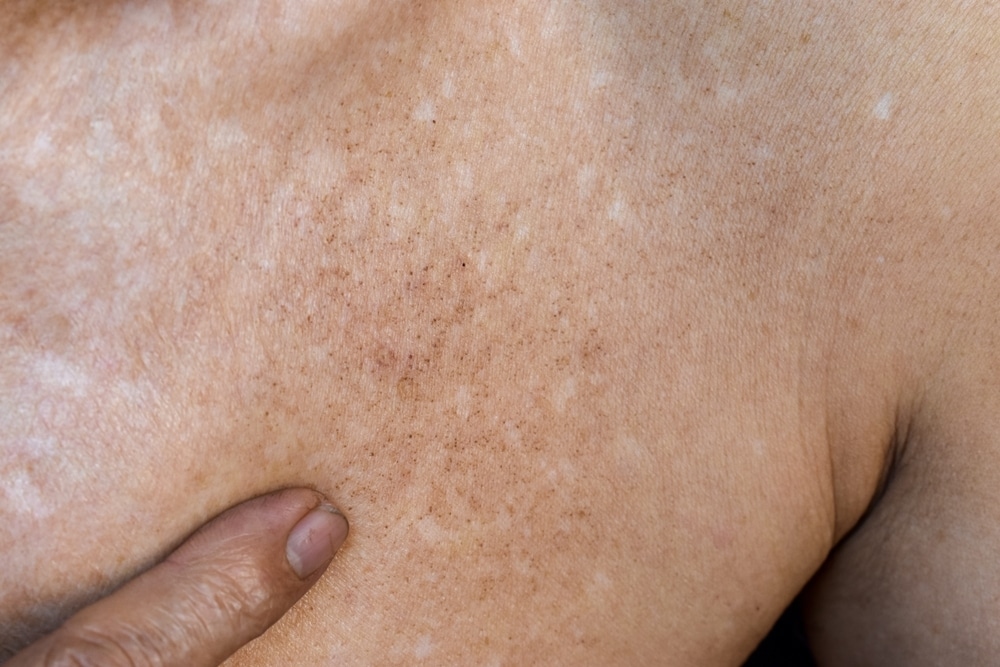Spending time outside in the sun is good for your psychological well-being and physical health. But unprotected sun exposure can wreak havoc on your skin and increase your risk of skin cancer—the most common cancer in the United States. So, how does sunburn cause skin cancer, and what can you do to protect yourself?
Don't fret if you've had a sunburn in the past. Life happens despite your best intentions, and it's never too late to learn practical sun safety tips so you can enjoy the outdoors to the fullest.
How Does Your Skin Respond to the Sun?
When your skin is exposed to too much ultraviolet (UV) radiation, it can burn or tan, depending on your skin type and how much melanin you have. Melanin is the pigment that gives your skin its color and defends it from the sun's rays. People with darker complexions naturally have more melanin than people with lighter complexions.
A tan happens when your skin cells release more melanin to protect your skin from UV rays, causing it to darken. Since lighter skin only has so much melanin to form this layer of protection, sun exposure often results in a sunburn instead of a tan. A sunburn is the body's inflammatory response to UV damage on the skin's outermost layers.
Tans and sunburns are both signs of skin damage. Either one can lead to skin cancer, as well as skin concerns like age spots, wrinkles, and a blotchy complexion.
Does Sunburn Cause Skin Cancer?
Sunburn is a well-known cause of skin cancer. Over time, UV radiation damages the DNA (or genetic code) in your skin cells, which can cause them to malfunction and grow out of control. This means your risk of skin cancer increases each time you get a sunburn. The Skin Cancer Foundation shares that just one blistering sunburn in your youth more than doubles your risk of developing melanoma in the future.
People with lighter complexions are at higher risk for skin cancer than people with darker complexions, but melanin-rich skin is still at risk. In fact, skin cancer in people of color is often discovered in its later stages, which can make it more difficult to treat.
Top 5 Sun Safety Tips
Protecting your skin from the sun doesn't have to be hard. Incorporating these sun safety tips into your daily routine will help keep your skin healthy and decrease damage from the sun—and your risk of skin cancer.
Use a Broad-Spectrum SPF
Opt for an SPF factor of 30 or higher. Using a sunscreen like EltaMD UV Clear Broad-Spectrum SPF 46 will help prevent sunburn and skin concerns like premature aging and hyperpigmentation. If you're prone to melasma or hyperpigmentation, a sunscreen with a higher SPF like EltaMD UV Sheer Broad-Spectrum SPF 50+ can help keep dark spots from forming.
Apply Sunscreen Generously
Generally speaking, adults should use enough sunscreen to fill a shot glass for full-body coverage. This includes your ears, scalp, and the tops of your feet. And remember: A base tan doesn't protect your skin from future sunburn. Tanned skin is damaged skin, and it needs protection too.
Reapply Sunscreen as Needed
Reapplying sunscreen on your face and other exposed areas of your body (like your chest and the tops of your hands) on a daily basis will help prevent chronic sun damage. When you're outdoors, reapply sunscreen every two hours and after swimming or sweating.
Consider Your Environment
Certain locations have stronger sun and may require more frequent sunscreen application. This includes high altitudes, like mountains, and reflective surfaces like sand, snow, and water.
Wear Sun-Protective Clothing
When spending time in the sun, opt for wide-brimmed hats and clothing that blocks UV radiation. To find the best sun-protective clothing, look for the Skin Cancer Foundation's Seal of Recommendation.
Protecting your skin from the sun doesn't mean you have to hide indoors. It's definitely possible to enjoy the sun and your natural surroundings without compromising your skin. By making sun protection a priority, you can enjoy healthy, beautiful skin for years to come.

